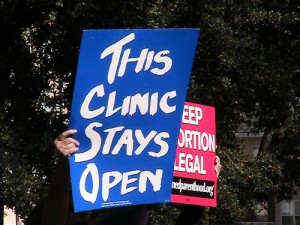An Update on Reproductive Rights: New Abortion Laws in 2013
A Recent California Law Increases Access to Abortion
California Assembly Bill 154, recently signed into law by Gov. Jerry Brown, increases access to abortions for women during the first trimester. The bill allows abortions to be performed by non-doctors including trained nurse-practitioners and medical assistants. While Planned Parenthood applauds this measure as yet another reproductive rights victory in California, others see the issue differently.
Aside from opposition based on moral grounds, there are worries about potential health hazards associated with non-physicians performing abortions. First trimester abortions are not completely safe; therefore, complications may result.
It is unclear how many nurse-practitioners or other medical assistants will opt to participate in abortion certification training. If many choose to forgo certifications and to not provide abortions, the hoped-for benefits of the “wider access” may be far less than expected.
California’s new abortion law highlights an issue in the medical field regarding class disparity. While affluent women are able to afford care in surgery-ready hospitals, others are given a “free choice” to only seek inferior care for reproductive health issues. Although abortions may be a relatively straightforward medical procedure, they should always be performed with care. By providing widespread access to potentially sub-par health care, abortion procedures may be trivialized.
Harsh Anti-Abortion Legislation Continues to Undermine Freedom of Choice
California’s new law unfolds against the backdrop of a nationwide curtailment of reproductive rights for women. It has been reported that 43 abortion-restrictive laws have been passed by various states in 2013. Since 2007, more than 100 abortion-restrictive measures had been successfully passed across the nation by state legislatures. While it is not clear, such abortion restrictions may have a disproportionately negative impact on the less affluent.
Some abortion restrictions may undermine the pro-choice victories in Roe v. Wade. For example, most abortions after the twelfth weeks of pregnancy are banned in Arkansas. In North Dakota, abortion may be banned as early as six weeks into the first trimester, when fetal heartbeat may be traced. This is one of the most restrictive laws concerning abortions in the entire nation.


Comments